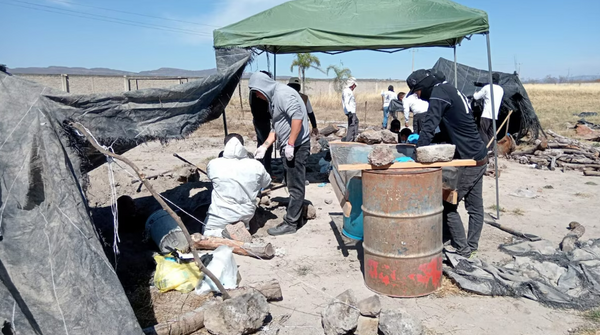
We will probably have to wait until he has left the job to hear exactly what Eddie Jones thinks about how club and country co-exist in England but he gave a clue shortly before he was appointed. “How can you manage your players when they are controlled by other organisations?” the Australian asked in late 2015. “In my opinion, that’s the single greatest task ahead of whoever is going to be appointed as the next England coach.”
It is a task Jones initially met with belligerence – as demonstrated with his “Donald Trump of rugby” jibe at the Bath owner Bruce Craig – but one that he has learned to grin and bear, and while the Rugby Football Union rarely behaves like Jones is kept on any sort of leash, it seems obvious he is now under strict instruction when it comes to criticising that particular arrangement. It is up for renewal soon enough, after all.
Having said that, the subtext this week of Jones declaring Ireland, where the union enjoys far more autonomy over its players, the most cohesive side in the world was clear. But perhaps his comment that the playing field is levelled at the World Cup is more instructive. Because, at times, Jones gives the impression of someone impatiently counting the days until early next summer and the first day of the 2023 World Cup campaign.
There was a telling line, buried deep within an RFU announcement last year that the Premiership would be allowed to halt relegation, which said that, in return, the union would have more preparation time in the build-up to the World Cup. Indeed, it is understood the RFU has discussed urging the Premiership to host its 2022-23 final as early as mid-May, and if Jones was not leading those negotiations then rest assured he will have approved.
The rub, however, is that Jones has already proven to his employers what he is capable of when allowed to spend time knocking his players into shape. Yes, the 2019 World Cup budget was overspent by nearly £1m, and in the current climate you cannot see that happening again, but he has a body of evidence to demonstrate he can achieve the cohesion he so covets next summer, and for that reason it is hard to see him being sacked even if England lose on Saturday and in Paris next Saturday. You sense Jones knows it, too.
The mind goes back to the bowels of Twickenham after one of England’s 2019 warm-up fixtures in which Jones waxed lyrical over the physique of Billy Vunipola, conducting a TV interview on the other side of the room. Go back over the highlights reel of England’s quarter-final win over Australia and Jonny May – who scored two tries that day – looks more like a turbo-charged flanker such is the bulk he had put on. Above all else, with uninterrupted access to his players, Jones was able to get Manu Tuilagi in peak shape for the rigours of an arduous campaign.
If conditioning was key for Jones, off the field he achieved cohesion too. Jones discusses the booze-fuelled flare-up between Mike Brown and Ben Te’o at a camp in Treviso in his book and pointedly says that was far from the only conflict within the squad. It is believed there was one particular incident when a player’s comedy routine went down so badly he and a teammate had to be pulled apart, and it has been suggested that at one point the rifts were so deep they seemed irreparable. By the latter stages of the tournament, however, players were lining up to explain how it was the most harmonious environment they had been involved in. At first it came across as empty rhetoric but increasingly it seemed genuine.

All of which brings us to Twickenham on Saturday, when the majority of the 82,000 supporters in attendance could not care less about England’s pre-World Cup camps next year. They do not want to hear that the current side is a work in progress, that they are on a journey towards France 2023 and that they are heading in the right direction. They do not want to hear that their side are not favourites or that progress is not always linear, and they cannot countenance England being out of the Six Nations title race before the final weekend again. Rather, they simply want to see England perform as the richest union in the world should and to hell with tomorrow.
Twickenham is, after all, expensive – it is understood that next season more than two-thirds of tickets are set to cost more than £100 – so supporters expect value for money. But it was telling this week to hear Jones say the difference for England is that they are not immune from criticism even when they win; you almost wonder if that has encouraged his World Cup preoccupation.
That is, of course, not to say that Jones is unmoved about Saturday’s outcome and obviously a resounding victory, founded on power and poise, will boost England’s chances both in this Six Nations and at the World Cup. Jones always publicly insists that he is only bothered about the next game – to the extent that the phrase has lost all meaning – and though he will relish adding the final touches next summer, the cohesion he strives for on the field needs to develop over the next 12 months. The average paying punter, though, cares little beyond the next 80 minutes.
It should be acknowledged that the groans that greeted performances in late 2020 and early 2021 have largely dissipated. Granted, England have come from a low base – when the ball was described by George Ford as a “ticking timebomb” – but there was a swagger, as well as a good slice of fortune, to last autumn’s win over South Africa and there are some encouraging signs around this team, even if there is a fogginess to it all as well.
Jones has complete conviction it will clear by next year and though he has lost two finals, his World Cup record stands scrutiny with the best. Defeat on Saturday, however, and the clouds above Twickenham will darken. Jones, just as 12 months ago, will have another storm to ride.







